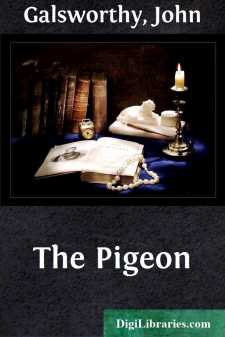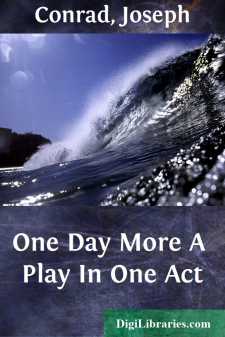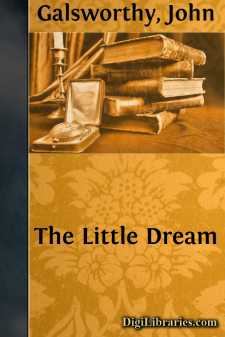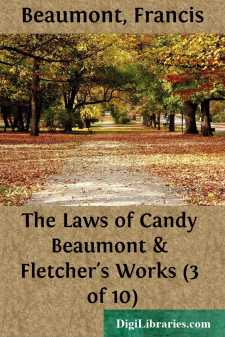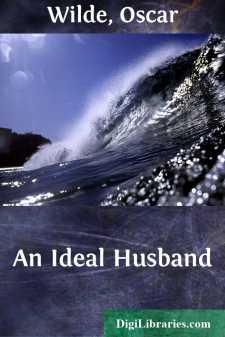Drama
- American 43
- Ancient, Classical & Medieval 45
- Asian 7
- Caribbean & Latin American 2
- Continental European 50
- English, Irish, Scottish, Welsh
- General 105
- Middle Eastern 1
- Religious & Liturgical 1
- Shakespeare 1
English, Irish, Scottish, Welsh Books
Sort by:
INTRODUCTION It must have been on Synge's second visit to the Aran Islands that he had the experience out of which was wrought what many believe to be his greatest play. The scene of "Riders to the Sea" is laid in a cottage on Inishmaan, the middle and most interesting island of the Aran group. While Synge was on Inishmaan, the story came to him of a man whose body had been washed up on...
more...
by:
John Galsworthy
ACT I It is the night of Christmas Eve, the SCENE is a Studio, flushwith the street, having a skylight darkened by a fall of snow.There is no one in the room, the walls of which are whitewashed,above a floor of bare dark boards. A fire is cheerfullyburning. On a model's platform stands an easel and canvas.There are busts and pictures; a screen, a little stool, two arm.chairs, and a long...
more...
ACT I. SCENE: [Country public-house or shebeen, very rough and untidy. There is a sort of counter on the right with shelves, holding many bottles and jugs, just seen above it. Empty barrels stand near the counter. At back, a little to left of counter, there is a door into the open air, then, more to the left, there is a settle with shelves above it, with more jugs, and a table beneath a window. At the...
more...
by:
Joseph Conrad
ONE DAY MORE SCENE I. CURTAIN RISES DISCLOSING CARVIL and Bessie moving away from sea-wall. Bessie about twenty-five. Black dress; black straw hat. A lot of mahogany-coloured hair loosely done up. Pale face. Full figure. Very quiet. Carvil, blind, unwieldy. Reddish whiskers; slow, deep voice produced without effort. Immovable, big face. Carvil (Hanging heavily on Bessie's arm). Careful! Go slow!...
more...
by:
John Galsworthy
SCENE I It is just after sunset of an August evening. The scene is aroom in a mountain hut, furnished only with a table, benches.and a low broad window seat. Through this window three rockypeaks are seen by the light of a moon which is slowly whiteningthe last hues of sunset. An oil lamp is burning. SEELCHEN, amountain girl, eighteen years old, is humming a folk-song, andputting away in a cupboard...
more...
by:
Francis Beaumont
Actus PrimusScena Prima Enter Gaspero, and Melitus MelitusSir, you're the very friend I wish'd to meet with,I have a large discourse invites your earTo be an Auditor. GasperoAnd what concerns it? MelitusThe sadly thriving progress of the lovesBetween my Lord, the Prince, and that great Lady,Whose insolence, and never-yet-match'd Pride,Can by no Character be well exprest,But in her only...
more...
by:
Oscar Wilde
FIRST ACT SCENE The octagon room at Sir Robert Chiltern’s house in Grosvenor Square. [The room is brilliantly lighted and full of guests. At the top of the staircase stands lady chiltern, a woman of grave Greek beauty, about twenty-seven years of age. She receives the guests as they come up. Over the well of the staircase hangs a great chandelier with wax lights, which illumine a large...
more...
by:
William Congreve
TO THERIGHT HONOURABLE CHARLES MONTAGUE,ONE OF THE LORDS OF THE TREASURY. Sir,—I heartily wish this play were as perfect as I intended it, that it might be more worthy your acceptance, and that my dedication of it to you might be more becoming that honour and esteem which I, with everybody who is so fortunate as to know you, have for you. It had your countenance when yet unknown; and now it is made...
more...
by:
John Galsworthy
ACT I HILLCRIST'S study. A pleasant room, with books in calfbindings, and signs that the HILLCRIST'S have travelled, suchas a large photograph of the Taj Mahal, of Table Mountain, andthe Pyramids of Egypt. A large bureau [stage Right], devotedto the business of a country estate. Two foxes' masks.Flowers in bowls. Deep armchairs. A large French window open[at Back], with a lovely view of...
more...
by:
Robert Dodsley
SUMMER'S LAST WILL AND TESTAMENT.[16] Enter WILL SUMMER,[17] in his fool's coat but half on, coming out. Noctem peccatis et fraudibus objice nubem.[18] There is no such fine time to play the knave in as the night. I am a goose or a ghost, at least; for what with turmoil of getting my fool's apparel, and care of being perfect, I am sure I have not yet supp'd to-night. Will...
more...



